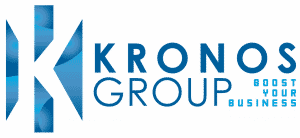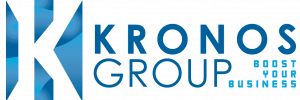How to overcome the challenges of achieving project maturity

Summary
Embarking on the journey to elevate project management maturity involves a crucial step; conducting a comprehensive maturity assessment. In this blog, we delve into the significance of achieving project maturity. This diagnostic tool provides insights into the effectiveness of current tactics, allowing organisations to redefine project goals and components, and implement quality control measures. We also discuss the common challenges faced by organisations striving for maturity in projects and how to enhance the assessment process, organisations can leverage strategies for overcoming challenges in project progression with the expertise of project management consultants. These professionals bring specialised knowledge, skills, and strategic insights, guiding organisations toward informed decision-making, optimised time management, and improved project completion metrics. The result is an elevated project management function characterised by efficiency, effectiveness, and a proactive approach to challenges, ensuring sustained excellence and future success.
Project maturity refers to the level of refinement and optimisation in an organisation’s project management processes, it is also known as project readiness. It is a measure of how well an organisation can consistently and predictably deliver successful projects.
Maturity in the project is often categorised into stages, ranging from initial and ad-hoc processes to more refined, well-defined, and optimised practices.
What is the significance of achieving maturity in projects?
Achieving maturity in projects is critical for organisations seeking consistent success in their projects. It involves the development and optimisation of processes, leading to improved efficiency, reduced risks, better quality, and increased adaptability to change—all contributing to the overall success of the organisation’s projects.
As an organisation matures in its project management capabilities, it becomes more efficient in planning, executing, and completing projects. This efficiency leads to resource optimisation, reduced delays, and streamlined workflows.
Mature project management processes help identify and mitigate risks effectively. Through established methodologies and experience, organisations can anticipate potential issues and implement proactive measures to minimise project risks.
A mature project management framework ensures consistency in project delivery. Standardised processes and methodologies contribute to a higher quality of work, reducing errors and rework.
An improved maturity in projects often correlates with enhanced communication and collaboration. Clear communication channels and well-defined roles contribute to better understanding among team members, stakeholders, and project sponsors.
Organisations with mature project management practices tend to have higher project success rates. This includes meeting project objectives, staying within budget, and delivering on schedule.
Mature organisations are more adaptable to changes in project requirements, scope adjustments, or unexpected challenges. Agile and flexible project management processes allow for quicker responses to change, maintaining project success even in dynamic environments.
A mature project management culture emphasises learning from past experiences. This commitment to continuous improvement ensures that lessons learned from one project are applied to enhance future projects, contributing to ongoing organisational growth.
What are the common challenges faced by organisations striving for project maturity?
Addressing challenges is fundamental to reaching maturity in projects. It ensures a more resilient and adaptive project management environment, leading to consistent success, improved efficiency, and the overall growth of the organisation. Organisations striving for maturity in projects often encounter various challenges that can hinder their progress.
Unclear project goals and objectives
Establishing objectives form direction. With clear goals, teams may maintain focus, resulting in effective project planning and execution. This can lead to misalignment between project outcomes and organisational objectives.
Inadequate project management processes
Inefficient processes can result in delays, cost overruns, and inconsistent project outcomes. Organisations may struggle to establish a standardised approach to project execution, hindering scalability and repeatability.
Insufficient communication and collaboration
Ineffective communication can lead to misunderstandings, missed deadlines, and decreased team morale. Collaboration challenges hinder the sharing of information and knowledge, impacting the overall efficiency of the project team.
Resistance to change
Resistance to change can impede the implementation of improved project management practices. Without a cultural shift, organisations may struggle to embed new methodologies, hindering progress towards project management maturity.
Resource constraints and budget limitations
Resources form a direction for projects. Inadequate resources may lead to compromised quality, and budget constraints can hinder the implementation of necessary tools and training programs, limiting the overall maturity of projects.
Inconsistent project performance metrics
Without consistent metrics, assessing project management performance and making data-driven improvements becomes challenging. Organisations may struggle to demonstrate the value of project management efforts to stakeholders.
Inadequate risk management
Failing to address risks can result in project delays, budget overruns, or even project failure. A lack of proactive risk project management can undermine the overall success of projects and impede progress towards maturity.
Limited learning from past projects
Experience drives clarity; without a focus on learning from past experiences, organisations may repeat mistakes and miss opportunities for improvement. Improvement is essential for progressing through maturity in project stages.
Lack of executive support
Without executive buy-in, it can be challenging to allocate resources, implement necessary changes, and foster a culture of project management maturity. Leadership support is crucial for overcoming organisational barriers.
Technology and tooling issues
Outdated tools can hinder collaboration, efficiency, budgeting, and project visibility. Investing in modern, efficient tools is crucial for supporting project management processes and advancing the pace towards management maturity.
Addressing these challenges requires a strategic and holistic approach, involving not only process improvements but also cultural changes and continuous learning within the organisation. Firms that effectively navigate these challenges are better positioned to achieve and sustain maturity in projects.
What are the strategies for overcoming challenges in project progression and maturity?
In the dynamic landscape of project management, the journey towards achieving maturity in projects is a critical pursuit for organisations seeking sustainable success. As the complexities of projects continue to evolve, so do the challenges that organisations face in their quest for maturity. A comprehensive and strategic approach is indispensable in overcoming these hurdles and fostering an environment where projects consistently meet objectives and contribute to organisational growth.
Organisations can adopt several approaches to meet challenges in the project progression arena. The first approach that can be taken is the establishment of clear and measurable project goals; it is important to define and communicate project goals and objectives. Utilise the SMART criteria for goal-setting. Regularly review and align goals with organisational objectives.
Firms can also take measures to implement robust project management methodologies. Adopt proven project management frameworks. Provide training and resources to ensure the consistent application of methodologies. Regularly assess and update methodologies based on industry best practices.
Communication is key and is what elevates projects, objectives, and operations. Enhance communication and foster collaboration by implementing collaborative tools and communication platforms. Establish clear communication channels and protocols and encourage a culture of open communication, feedback, and knowledge sharing.
It is important for firms to lead organisational change effectively and develop a change management plan to address resistance and build resilience. Communicate the benefits of change and involve key stakeholders. Provide training and support to help teams adapt to new processes.
Finances and resources are essential to keep projects on the move; thus, it is important to optimise resource allocation and financial budgeting. Conduct a thorough resource and budget analysis for each project and prioritise projects based on strategic goals and resource availability. In addition, regularly review and adjust resource allocations and budgets as needed.
Standardising project performance metrics and establishing a set of consistent project performance metrics ensure that metrics align with organisational objectives while regularly reviewing and updating metrics to reflect evolving project goals.
In this ever-evolving business dynamic, it is important to enhance risk management practices and conduct thorough risk assessments at project initiation. Develop and implement a comprehensive risk management plan and monitor and reassess risks throughout the project lifecycle, adjusting strategies as necessary.
It is important to train stakeholders through the promotion of learning from past projects. Conduct post-project reviews to identify lessons learned and establish a knowledge-sharing platform or repository. Encourage a culture of continuous improvement and learning from both successes and failures while offering training programs to enhance project management skills. Consider creating a system of motivation through the encouragement of certification in relevant project management methodologies and supporting continuous learning and development for project team members.
Educating executives on the benefits of project maturity is crucial too. Communicate the impact of mature project management on overall organisational success and engage executives as champions for maturity in project initiatives.
An organisation’s processes are defined by its establishing a culture of accountability. Define clear roles and responsibilities for team members and hold teams accountable for meeting project objectives and milestones while fostering a culture where individuals take ownership of their tasks and deliverables.
Invest in modern project management tools and evaluate and adopt up-to-date project management software and tools. Provide training to ensure the effective use of tools across the organisation. Regularly assess and update tools to meet evolving project management needs.
By implementing these strategies, organisations can systematically address challenges and progress towards achieving and sustaining maturity in projects. It is important to tailor these approaches to the specific needs and context of the organisation. Regular evaluation and adoption of strategies will contribute to ongoing improvement in project management maturity.
What is the importance of addressing challenges to reach project maturity?
Addressing challenges is crucial in the journey towards maturity in projects as it significantly impacts the overall success and effectiveness of an organisation’s projects.
Optimised performance
Organisations face several hurdles like inefficient processes and lack of clarity in project goals. Addressing these challenges ensures the optimisation of project management processes, leading to improved performance. This optimisation results in better resource utilisation, reduced delays, and increased overall efficiency.
Risk mitigation
Projects generally undergo challenges such as inadequate risk identification and mitigation processes. By addressing these project-related challenges, organisations can enhance their ability to identify and manage risks effectively. This, in turn, reduces the likelihood of project failures and unexpected setbacks.
Enhanced communication and collaboration
Firms generally face issues with communication and collaboration within project teams. Tackling these challenges fosters improved communication and collaboration, which are essential for project success. Clear communication ensures everyone is on the same page, reducing misunderstandings and enhancing team efficiency.
Adaptability to change
If there is an inability to adapt to change within the organisation, it is important to address resistance and promote adaptability to change—vital for project maturity. Mature firms can respond more effectively to shifts in project requirements, technology, or market conditions, ensuring ongoing success in dynamic environments.
Resource optimisation
A massive project management challenge related to budget and resource allocation is resource optimisation. Overcoming challenges in resource management is essential for project consolidation. Efficient allocation of resources and adherence to budgets contribute to the overall success of projects, preventing delays and cost overruns.
Consistent quality
Quality is key and what defines a project’s outcome and potential. A lack of standardised processes affects the quality of deliverables. Firms can address these challenges related to process standardisation to ensure consistent quality. This leads to higher client satisfaction, reduced errors, and increased confidence in outcomes.
Measurable success
Often when conducting projects firms tend to have difficulty in measuring project success. Overcoming this challenge enables organisations to establish clear metrics for success. This, in turn, allows for the continuous monitoring and improvement of project management practices, contributing to overall project maturity.
Employee engagement and satisfaction
Projects tend to halt or lack progression due to low morale from unclear goals or lack of recognition in the internal stakeholder base. Firms tend to address challenges through employee engagement. Engaged and satisfied members are more likely to contribute positively to project success, driving the organisation toward maturity.
Unlocking project management excellence through maturity assessments
Embarking on a journey to elevate your organisation’s project management maturity involves a strategic and insightful approach. The first step in this transformative process is conducting a comprehensive maturity assessment. This examination serves as a diagnostic tool, shedding light on the effectiveness of current maturity tactics and providing invaluable insights.
Once a maturity test has been executed, it becomes a catalyst for organisational refinement. Armed with the findings, your organisation gains the ability to redefine project goals, delineate crucial project components, and implement robust quality control measures. This strategic recalibration ensures that anticipated outcomes are not just envisioned but systematically achieved.
Partnering with expertise and the role of project management consultants
To optimise the efficacy of your maturity assessments, consider enlisting the expertise of a seasoned project management consultant. These professionals bring a wealth of specialised knowledge, skills, and experience to the project management landscape. Their involvement translates into informed decision-making throughout the project lifecycle, fostering optimised time management and improved project completion metrics.
A project management consultant serves as a beacon, guiding your organisation away from pitfalls that often result in costly errors and oversight. Their unique insights minimise risks, enhance efficiency, and contribute to a more streamlined project management process.
Project management consultancy is not just about expertise; it is about strategic alignment. These consultants work closely with your organisation to tailor solutions that fit seamlessly into your project objectives, budget constraints, and timelines. The result is an elevation of your project management levels to maturity, characterised by efficiency, effectiveness, and a proactive approach to challenges.
Leverage the expertise of a project management consultant to conduct thorough and insightful maturity assessments. This collaborative effort is not merely a consultancy; it is an investment in the future success of your projects. Elevate your project function with project management consulting, align with industry best practices, and embark on a trajectory towards sustained excellence.




